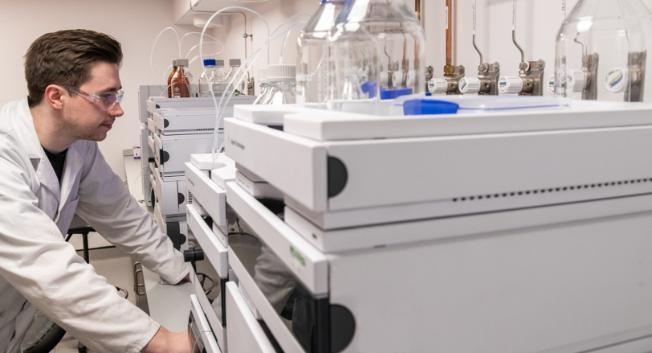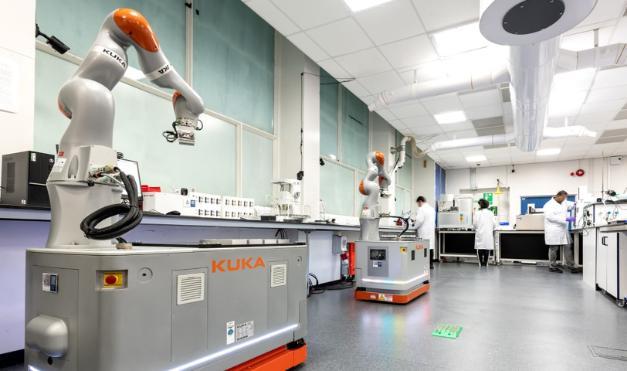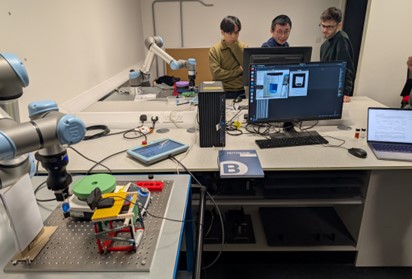We offer both postgraduate research opportunities and postgraduate taught programmes in fundamental and applied science.

Our degree programmes will place you working in our world-leading Department with multi-disciplinary research expertise, unparalleled facilities and dynamic support infrastructure to revolutionise your research and development. The Chemistry department is a place where academic and industrial researchers work side by side, sharing knowledge in highly advanced research labs and supporting your career development.
Join us and you’ll be based in a state-of-the art environment that has a strong focus on cutting-edge interdisciplinary research. We are internationally known for our research, with 99% of our outputs ranked as internationally leading or excellent in REF2021. Our 50 academic staff cover a broad scientific spectrum and we operate in 5 flexible research groupings.
- Chemical Models
- Chemistry of World Health
- Energy and Interfaces
- Materials Chemistry
- Organic Synthesis and Catalysis.
Our impact is felt on a global scale, from antimalarial drug discovery to one of the best-known methods for making nanoparticles.
Current research
As an indication, here are some current topics on offer to postgraduate students.
- Next generation battery technologies and storage materials
- Automated synthesis robotic workflow
- New materials for net zero applications
- New Polymers as functional coatings
- Synthesis of industrial important molecules.
- Novel antimalarial compounds
Postgraduate Research Programme or Postgraduate Taught Masters Programme?
Choosing between a Postgraduate Research Programme (PGR) and a Postgraduate Taught Masters Programme (PGT) depends on your career goals, learning style, and interest in research.
Postgraduate Research Programme (PGR)
Focus: Independent research, original contribution to knowledge.
Typical Degrees: MPhil, PhD
Structure: The programme is primarily focused on self-directed research under one or more supervisors. The end point being submission of a thesis or dissertation. It will include minimal taught modules (if any).
Duration: MPhil 1-2 years, PhD 3-4 years if completed full time.
Ideal for those aiming for careers in academia or research-intensive industries, students with a strong interest in a specific research area and individuals who prefer self-directed, project-based learning.

Postgraduate Taught Masters Programme (PGT)
Focus: Advanced knowledge, specialist expertise, career enhancement, postgraduate progression
Typical Degree: MSc
Structure: The programme typically comprises taught modules in Semesters 1 and 2, followed by a research project during the summer. Learning methods include lectures, workshops, practical sessions, structured coursework, and group projects. The programme culminates in submitting a final dissertation based on the summer research project.
Duration: 1 year (full-time)
Ideal for those looking to enhance their career prospects, prefer structured learning, want to upskill, wish to change career paths, or aim to specialise in a subject of interest. The MSc is also an excellent pathway to further postgraduate research, such as a PhD, for students who have completed their undergraduate studies with a BSc.

Back to: Department of Chemistry